The writer of some of the world’s most popular worship songs explains why we need to be singing more about the holiness of God
Matt Redman knows what he’s called to do.
“Write songs that help people see God and sing to him,” Redman replies without a hint of hesitation, when I ask him to sum up his vocation.
The 49-year-old Grammy award-winning songwriter regularly travels the world, leading thousands in worship. Songs such as ‘Our God’ and ‘10,000 Reasons’ have been sung by millions, and are often translated into other languages. Yet there’s a refreshing simplicity and humility to Redman. He’s down to earth and straightforward – and although he now lives in California, the worship leader hasn’t lost his decidedly British brand of self-deprecating humour.
Worship music has unifying power – the same songs are often sung by Presbyterians and Pentecostals alike. Redman is aware of this, and perhaps mindful that a word or two out of place in an interview has the potential to land him with problems. Whether conscious of it or not, he’s always balanced in our conversation. While advocating for his fellow Christian songwriters to focus more on the holiness, grandeur and majesty of God, he’s mindful never to disparage others’ work. Similarly, while conceding that worship music is big business in the US, he wisely points out the lure of celebrity and fame is a matter of the individual heart. “At the end of the day it’s all about keeping your own side of the street clean,” he says.
Even in the toughest moments I’ve known that God is good
The songs that Redman has written out of places of pain are often the ones that have most connected with congregations. ‘Blessed be your name’ and ‘You never let go’ were both produced after Matt’s wife Beth, experienced a series of miscarriages. The songwriter also lost his father to suicide as a young boy, so I’m somewhat taken aback by the simplicity of his answer to the question of suffering. After acknowledging the mystery of “God, why would you let this happen?” he adds that he sometimes feels it is “like a simple equation. Look at all the blessings in my life – look how God has pulled me through. That good stuff far outweighs the questions and the doubts.”
Integrity Music has billed the songwriter’s 14th album as his “most unique and immersive” project to date – a reference to the “stunning” surroundings of the Mission in San Juan Capistrano, just outside of Los Angeles, where Lamb of God was recorded. From ‘The praise is yours’ to ‘Son of suffering’, Redman is doing what he does best – writing songs on weighty themes such as the cross, grace and unconditional love – and delivering them with conviction and creativity. If his previous success rate is anything to go by, it won’t be long before you’re singing at least a few of these tracks on a Sunday morning.
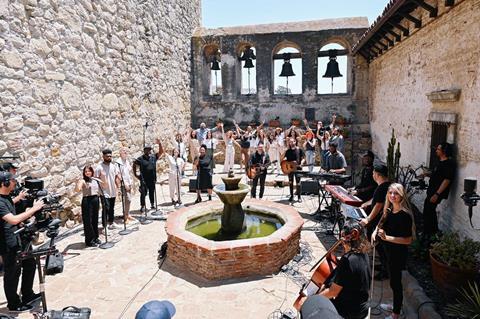
Matt, your record label described the new album, Lamb of God, as “the most unique and immersive experience Redman has done.” What does that mean?
Wow! I didn’t know they said that. That’s great.
I think they might be referring to us recording it at The Mission in San Juan Capistrano. It’s absolutely stunning and inspiring visually.
The chapel goes back to 1776 - the oldest working building in California. Which, as an English person, is not as impressive. But it’s a good effort. (Just teasing my US friends!).
In the videos, the setting looks biblical - almost as if you could be recording it in Jerusalem.
Yeah, it’s funny, because we get that comment a lot - "Did you record that in Israel?" Which would be a whole other budget entirely if we did!
But we do have a video coming out where we teamed up with The Chosen. It's probably the favourite video I've ever done. It was this beautiful thing because they approached us, and we realised, oh we could do a video with some of their footage, some of ours and it kind of matches up pretty well.
So many people have been impacted by The Chosen, and I’m one of them. What I love most is how it not only tells us the story of Jesus, but it also conveys so much of the heart of Jesus.
How do you define success as a worship leader?
When I release an album, in many ways, I don’t even think of myself as an artist.
I’m only making albums, because it’s about the songs. And it’s about trying to see if I can help people talk to God and see God through song.
I love the immeasurable stuff that you can’t put it on a chart. Someone may be walking through the most intense moment of their life and this little simple song becomes a soundtrack for them in that moment. It’s kind of humbling and inspiring.
It’s also kind of a mystery. How can these little words and a few chords mean so much? It’s just God’s blessing of music, I guess.
I am unbelievably bad at figuring out what songs are gonna land well with people – or if any of them are.
Were you born into a Christian family or did Christian faith come later for you?
My mum and dad were not churchgoers.
Sadly I lost my dad when I was seven years old. He actually took his own life. But it’s interesting because even at that very young age, there was something about God and faith starting to form in me. Aged 10, I went to a Luis Palau rally at QPR football stadium and gave my life to Christ. He talks a lot about the Father heart of God in that in that message. So that was a fantastic thing for me to hear in that moment.
My teenage years were even more turbulent, just a lot of family disarray. And I was so glad that I already knew God by then. Even in the toughest moments, I knew enough of him to know that he’s good, and he’s hasn’t left the scene. He’s still in control. I don’t think I could have put it into words in that way. But deep down inside, there was a stabilising factor of a faith. And actually, it’s kind of what got me into music and worship, because the most helpful thing for me was these worship songs we were singing at church. That’s why I wanted to play the songs at home. Then I started writing songs, because that was my way of processing everything. I didn’t start writing songs for albums or even congregations. I started writing songs because I needed to.
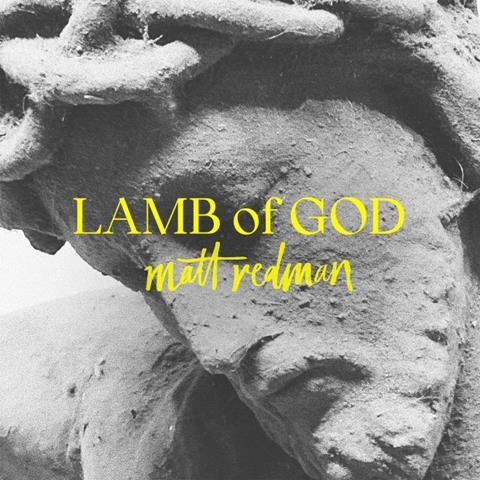
Often the most powerful worship songs are born from times of hardship. You’ve spoken in the past about how your song ‘You Never Let Go’ came out of you and your wife Beth dealing with the pain of miscarriage. It seems you’ve been able to take tragedy and somehow find a way to worship in it and through it. What would you say to someone who doesn't understand how you can still believe in God after that kind of tragedy?
I think it’s a simple equation sometimes of, there are elements of this, which I don’t understand, and I would rather have not gone through and I definitely wouldn’t have volunteered for. And God, why would you let this happen?
But then on the other side of the scale I’ve got to look all the blessings in my life. Look how you pulled me out of this, look how you have provided.
For me, it’s almost like a simple equation - the good stuff far outweighs the questions and the doubts.
the ultimate compliment is when someone says, “I kind of knew that about God. But that song helped me see it in a new way.”
You’ve been a part of many churches both in the UK and US, which has meant a lot of travelling and moving your family. How has that been?
Yeah, if only the UK and USA were a few thousand miles closer together, my life would have been a whole lot simpler!
Most of our moves have been around church plants. It’s been quite an adventure, planting a couple of times in England, and then Passion City Church in Atlanta. And honestly, just trying to follow God, and trying to say yes to the things we felt he was asking us. At times it felt thrilling, at times it felt costly.
But the great thing was that wherever we went, we saw the kingdom of God at work. We actually saw the gospel works - it doesn’t matter if there's twelve of you in a room, which we were in England, in a little village starting out, or if you’re a big team in Atlanta, and 3,500 people show up to your first Sunday meeting it. If you put the gospel in front of people, it bears fruit and we saw the good news of Jesus at work in people’s lives.
Worship music is big business in America, especially compared to the UK. Are there dangers that come when worship ministry is intrinsically connected to business?
Yeah, you could definitely put forward an argument for the fact there’s a lot more enticement and distraction possible.
When I grew up doing this, there wasn’t even social media. And in England, we didn’t have the far reaching Christian music industry that America is known for. So I always feel very grateful to have grown up in an environment where there was a lot less potential for that distraction. There was still some, but honestly, not as much as for the average young person growing up and becoming a worship leader today.
And as you say, its more amplified in a place like America where there’s more resource and there’s more of an industry. At the end of the day, it’s all about keeping your own side of the street clean. It’s about you working on your heart, giving yourself some ruthless heart standards, trying to make sure that you don’t get tempted or enticed or diluted down in what God’s calling for you is.
Maybe not everyone else around you is operating in the most wholesome way. But you can still operate in a healthy way. That’s the big challenge for all of us, whatever scenario we’re in.
I remember this John Wimber quote when he said, “The real challenge in these days will not be in the writing and producing of new and great worship music. The real test will be in the godliness and the character of those who deliver it.” He said that more than a couple of decades ago, but that rings true hugely, even to this day.
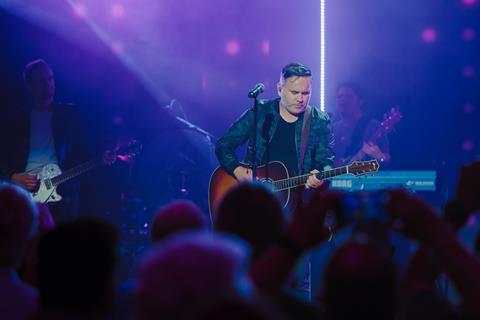
You regularly lead worship in different nations, denominations, churches. What have you learned from being exposed to different styles and even different beliefs and theology across the Christian spectrum?
If you go in with the right approach, you can actually learn a lot.
We’ve been involved, right from Catholic and high Anglican church to full on Pentecostal. And I’ve hardly ever heard anything that I thought was really off theologically. There are some times when I think I wouldn’t necessarily say it that way but normally, the main and plain stuff you can pretty much agree on and you can find a lot of common ground.
I remember when my daughter had just come back from a really fantastic creative course with some really trendy streams of the church. And she’d been really fired up by that and inspired. I took her into this very conservative environment for a conference. I was a little bit worried, wondering how she was going to take it. It was going to be very alien to her.
I looked around in the worship, and she was crying. And it surprised me. I said afterwards, “What was going on with you in the worship?” She said, “It was just the reverence. I’m not used to that amount of reverence being expressed.” It was so touching. It moved me deeply. I thought, Man, that’s really fascinating, isn’t it? I had thought, Oh, she’s 20 years old, this isn’t going to be her vibe. But actually, it brought out something new for her.
You’ve written songs on both ends of the spectrum – from ‘Undignified’ through to more reverent songs that emphasise the holiness of God. So clearly, you think there is there’s room for diversity in the kinds of songs we sing.
Yeah, I mean, for me, that’s a bit of a lifelong pursuit, honestly, trying to bring a little more reverence into these expressions of songs, because I think that’s what’s been lacking.
The opening song on the new album is called 'The Praise Is Yours', and its telling the story of God, because a lot of the problem in our worship songs is we tend to just talk about me and Jesus, here and now. And there’s nothing wrong with that. It’s beautiful. But if that’s all you ever sing, that’s problematic.
So in this song, we go before creation, we do creation, we do the cross, we do the resurrection. And we try and go right through, open up the story of it. Because if we can do that, it’s gonna give people a higher view of God.
You’ve written in this magazine before about the need to sing about the holiness of God, and his attributes which aren’t obviously beneficial to us, but are still true. So this has become a bit of a campaign for you, hasn’t it? It’s clearly something you feel strongly about.
Yeah, absolutely. I love singing songs where we don’t even get a mention.
Some of those songs really resonate with us and we don’t know why.
One would be ‘How great is our God’ by Chris Tomlin from years ago. I mean, that song had something to it and it was like the song was greater than the sum of its parts.
It wasn’t that the melody was the best melody ever heard, although it was great. It wasn’t that the lyrics were the most phenomenal thing you’d ever come across, although they were great. It was something about the sense of the song. And I think when you break it down, it’s a very reverent song where we are not at the centre. We actually don’t even get a mention in the whole song! And sometimes that’s a really good practice.
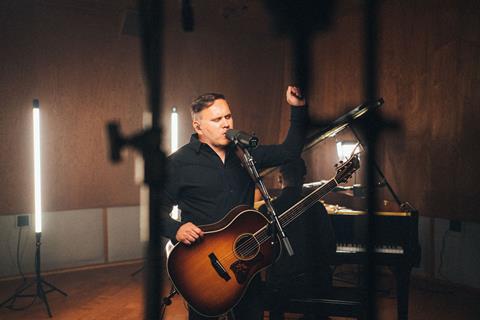
Every worship leader I’ve spoken to understands the importance of writing songs that are biblically and theologically accurate. Do you have a particular process to safeguard yourself in that area?
There’s a lady called Marva Dawn who said, “we may never sing the whole truth in worship, but we must never sing untruth.”
She’s right - there’s so many facets to his nature and character you can never cover it all. But you mustn’t sing anything untrue, or misleading.
The other danger is if the pendulum swings and you always sing about imminence, but you never sing of transcendence. You’ve got to keep all these things in balance.
A good lyric can be like lightning, or like a light bulb going off in someone’s mind or heart oh, I never knew that about God, or I never saw it like that. For me, the ultimate compliment would be if someone says about a song, “I kind of knew that about God. But it helped me see it in a new way.” Or “I knew that about God. But I didn’t know how to say that. And your song helped me do that.”
What songs from the new album do you think will especially resonate with people and become big songs that the church is singing?
You know, I am unbelievably bad at figuring out what songs are gonna land well with people – or if any of them are.
I’m not exaggerating here. I’m terribly bad at this.
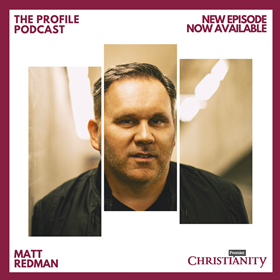
We can go way back to Tim’s Hughes’s ‘Here I am to worship’. I was the first person on earth to hear that song. And I think my exact words were “It’s quite good mate. I don’t think it’s as good as some of your others.”
About two years later, it was the most sung song in the worldwide church.
I wasn’t ever going to lead ‘Heart of Worship’ in a church service. I wasn't going to even put '10,000 Reasons’ on the album. We wrote it so quickly, it didn’t have a pre chorus, I was thinking there’s no way this song is finished. And it was actually the producer Nathan who said, “Hey, I don’t care what song we’re dropping, but this one’s going on the album.” So I’ve learned to not trust myself on that. I’ll just write the songs and see what happens.
Hear the full interview with Matt Redman at 8pm tomorrow on Premier Christian Radio, or on The Profile podcast
Lamb of God by Matt Redman is released today. Hear it now on all major streaming plaforms






































